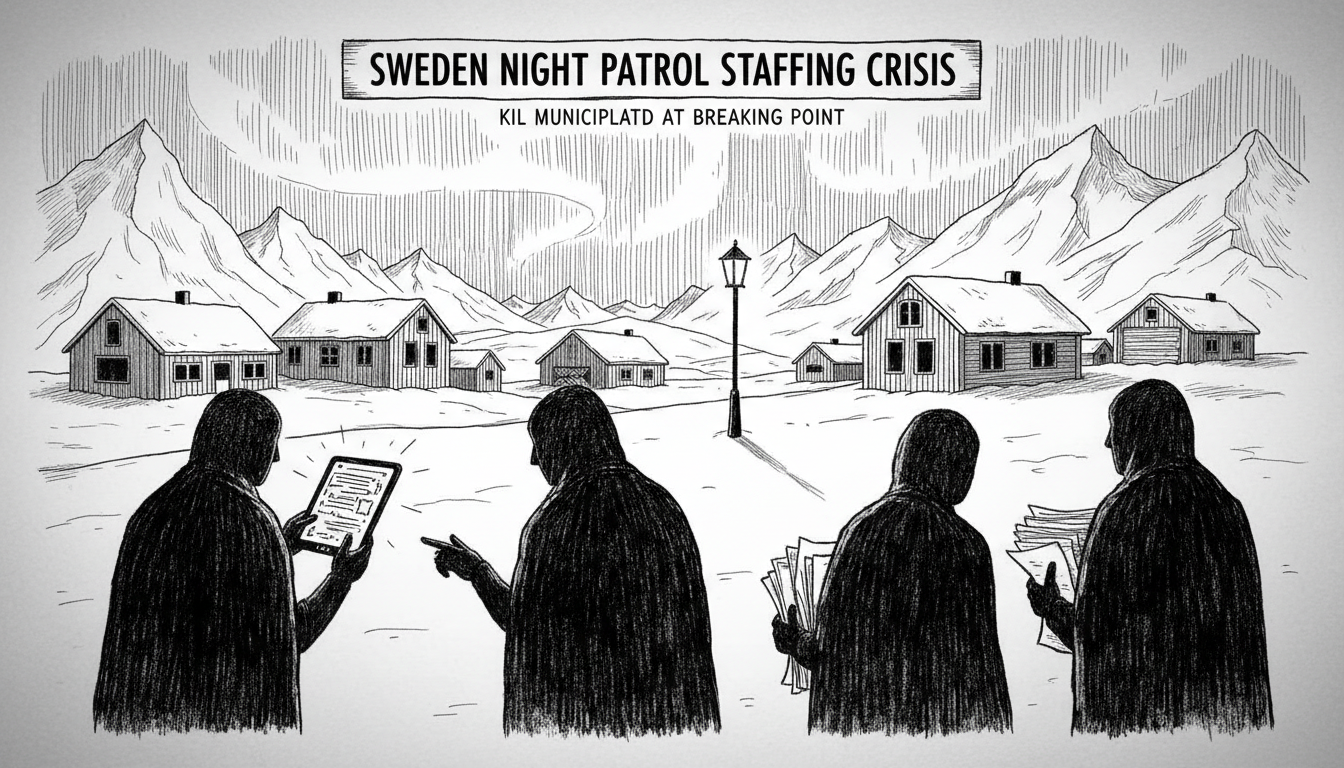A night patrol team in Kil municipality is sounding the alarm about critical staffing shortages. The service currently operates with just four workers covering the entire municipality from 9 PM to 7 AM. These employees respond to both scheduled visits and emergency calls across the community.
Night patrol worker Anna Szakal describes the overwhelming workload. "We are too few, and we have many alarms," she said. "At most, we've had 62 visits in a single night."
The staffing situation has created what workers call an unsustainable work environment. Unit manager Anna Norling defends the current staffing model, saying it's based on client numbers and their needs. Since 2023, Kil has used the LMO mobile app to track time spent with elderly clients, document care, and unlock doors. The system allows employers to monitor how much time workers spend directly with clients.
"In October, we were with clients 35 percent of worked time," Norling stated. "That leaves 65 percent for other tasks."
But frontline staff say the app presents a misleading picture of their actual workload. Maria Jonasson, who is returning from sick leave, explains the discrepancy. "They don't see everything else we do," she noted.
The situation has become so dire that workers describe it as undignified for both staff and elderly residents. Jeanette Österlund reached her breaking point and resigned when another job opportunity arose. "I said yes immediately," she revealed. "We have far too tough schedules, and my body said no."
This staffing crisis reflects broader challenges in Sweden's elderly care system. Municipalities across the country face similar struggles with recruitment and retention in care professions. The physical and emotional demands of night patrol work, combined with administrative pressures, create a perfect storm for worker burnout.
Norling acknowledges the seriousness of the situation. "We as employers take this seriously," she said in response to the staff's concerns.
The conflict between quantitative metrics and qualitative care work highlights a fundamental tension in modern public service delivery. While digital tools like the LMO app provide valuable data, they often fail to capture the full scope of care work's human dimensions.
International readers should understand that Sweden's municipal-based care system faces particular challenges in rural areas like Kil. Smaller communities struggle to maintain service levels amid demographic changes and workforce shortages. The situation in Kil serves as a warning sign for similar municipalities across the Nordic region.
What happens next could set important precedents for how Swedish municipalities balance technological efficiency with humane working conditions. The outcome will likely influence contract negotiations and staffing decisions in care services nationwide.

